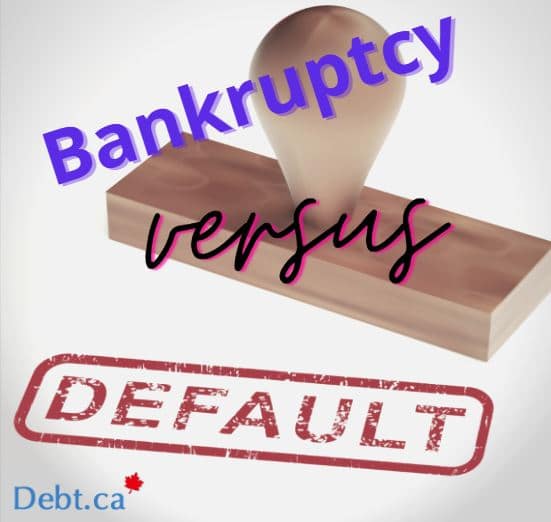When it comes to debt consolidation vs bankruptcy, the two differ in many ways. A rough economy can temp one to declare bankruptcy if you have large debts. After all, once you’ve declared bankruptcy, your creditors can no longer pursue you for the amounts you owe.
However, bankruptcy can also have negative consequences. Filing for bankruptcy can force you to surrender your material possessions and has a negative impact on your credit rating.
On the other hand, a debt consolidation loan can help repay virtually any type of debt. This is a much less drastic approach that does not involve bankruptcy trustees or the effects of a consumer proposal. Consolidation and bankruptcy may seem similar to the average consumer, but the repercussions are quite different. Evaluate debt consolidation vs bankruptcy and learn which can be most beneficial to you.
Filing For Bankruptcy: A Fresh Start At High Cost
Declaring bankruptcy essentially tells your creditors that you have no means of repaying your debts. If you declare bankruptcy, your debt repayments stop, and your creditors must cease all attempts at collecting their money. Bankruptcy erases many of your debts, though certain ones are exempt. If you file for bankruptcy, you may still have to pay the following obligations:
- Court fines
- Unpaid taxes
- Alimony
- Court-awarded damages from assault cases
- Student loans
Exemptions may vary by location. Check with your provincial or territorial government regarding which debts you will still have to repay if you file for bankruptcy.
If you file for bankruptcy, you must keep meticulous records of all income and expenses for however long your bankruptcy lasts. You may be required to give up some of your possessions. You may have difficulty renting a new living space or securing student loans. Declarations of bankruptcy do show up on employer background checks, which may hinder your ability to find a new job.
Bankruptcy will make it challenging to apply for a business loan, enter a new phone contract, or get a mortgage. A declaration of bankruptcy stays on your credit history for seven to ten years. Only after this period has elapsed do you get your fresh start.
Debt Consolidation Vs Bankruptcy: The Difference
Debt consolidation works by combining all of your debts into one monthly payment. It comes with one interest rate and one set of rules. A debt consolidation company will buy your debts for one set amount; this is essentially a form of a loan.
Debt consolidation has several advantages.
- Having only one creditor to pay means it is far more difficult to miss payments.
- Consolidated debts often have lower interest rates than unconsolidated debts, which can help you to free up more money every month. Debt consolidators usually accept low monthly payments and long repayment periods. As such, this can reduce the stress and pressure of having a tight monthly budget.
- Finally, debt consolidation allows you to pay back what you owe, which will boost your credit rating. Repay this consolidation loan as quickly as possible.
If large debts are threatening your finances, you may be considering bankruptcy as a means of easing the strain. However, bankruptcy will ruin your credit score and force you to surrender particular possessions. Also, it can restrict your options for jobs, mortgages, and cell phone contracts. Bankruptcy should always be a last resort.
Debt consolidation may allow you to pay off your debt without breaking the bank, which will help you to repair your credit history. Learn more about which debt relief option is right for you today.








